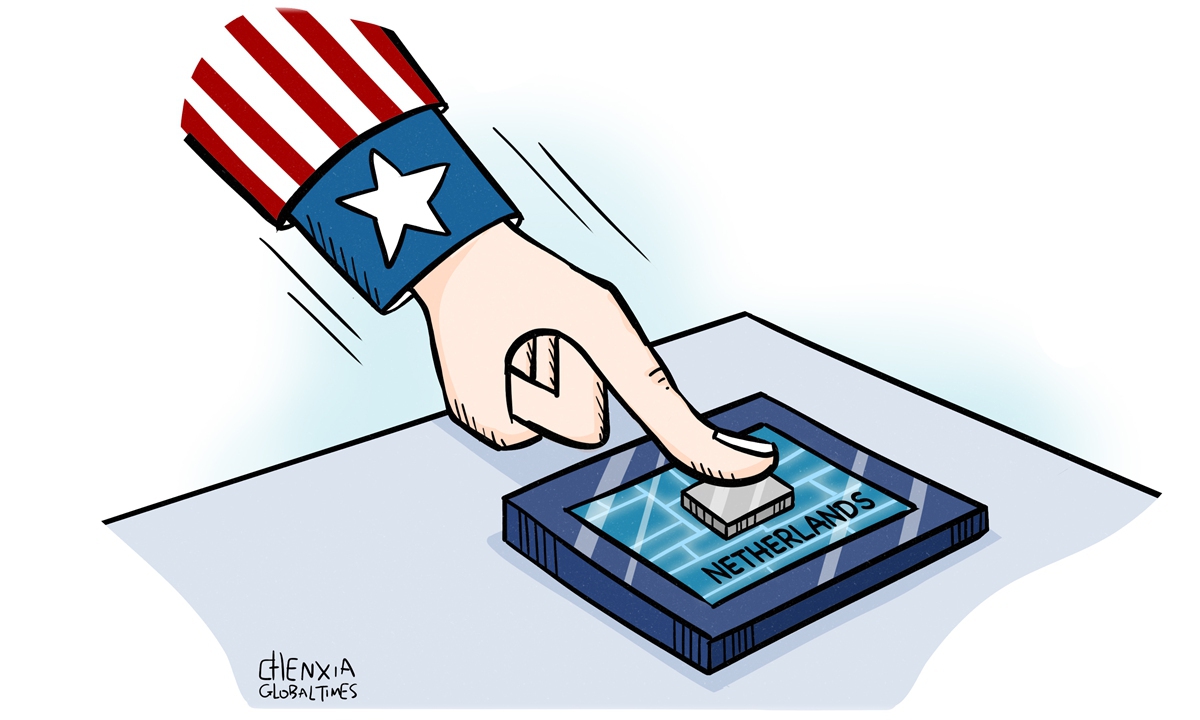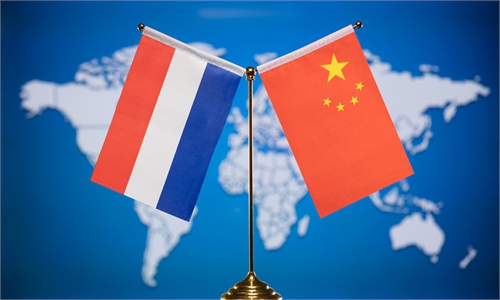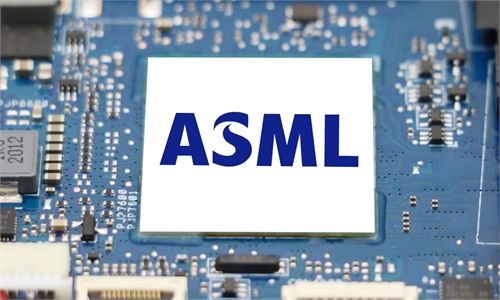
Illustration: Chen Xia/Global Times
In its annual report, the General Intelligence and Security Service of the Netherlands called China "the biggest threat to the Netherlands' economic security," AP reported on Monday. This scene is quite ironic: the Dutch national intelligence agency painted a grim picture in which China tries to "steal" cutting-edge technology from Dutch companies, but those high-tech firms, including semiconductor equipment maker ASML, are trying to bypass potential restrictions imposed by the government to beef up cooperation with China.The agency's report comes at a time when the US is coercing other countries, including the Netherlands, to undercut China's semiconductor capability. In March, Dutch Trade Minister Liesje Schreinemacher was quoted by media reports as saying that the Netherlands will impose new restrictions on exports of semiconductor technology to protect national security. And it is no surprise that the Netherlands' intelligence agency tries to find excuses for the country's potential export restrictions.
However, Dutch officials' "China threat" claims run counter to what businesses from both sides see in reality, in that China-Netherlands bilateral trade is mutually beneficial. For any reasonable person in the Netherlands who has a basic understanding of the bilateral trade, China is an important economic partner for the Netherlands, not a threat to its economic security.
According to a Financial Times report, China accounts for 11 percent of Dutch imports, second only to Germany, and about 5 percent of exports. More importantly, China is an important export market for high-tech products from the Netherlands. China remained one of the largest markets for ASML in 2022 despite the US' ill-intentioned chip war. The US-initiated supply chain decoupling is clearly not in line with the interests of high-tech enterprises in the Netherlands. And Dutch policymakers should maintain strategic sobriety and, at least, not turn Dutch companies, including ASML, into cannon-fodder for the US-initiated chip war.
In stark contrast to the US' and the Netherlands' trade restrictions, China has extended open arms to foreign businesses, including those from the Netherlands. In March, Chinese Commerce Minister Wang Wentao met with ASML's CEO Peter Wennink, during which Wang emphasized that China will unswervingly promote high-level opening-up and is willing to create a favorable business environment for multinational companies including ASML to develop in the country.
It is plain for all to see that China poses no threat to the Dutch economy at all. Deepening economic and trade cooperation with China will only benefit the Dutch economy. Hopefully, the Netherlands will adhere to market principles, respect the spirit of contract, refrain from abusing export control regimes, and work to safeguard the stability of global industrial and supply chains, the free and open international trade order, and the shared interests of the Netherlands and China and the companies of the two countries.
The US' geopolitical game and technological hegemony are bringing harm to countries like the Netherlands. Driven by its zero-sum mindset, the US coerced countries such as the Netherlands and Japan to restrict exports of chips and related equipment or technology to China. What the US is attempting to do is to artificially interrupt the mutually beneficial economic and trade cooperation between China and the Netherlands out of the sinister intention of containing China's technological development.
The Dutch government should see through this and do its best to resist pressure from the US, rather than being caught in the "China threat" narrative trap laid by Washington. Unfortunately, the Netherlands' General Intelligence and Security Service's assertion that China is a "threat" shows that the Dutch government is falling into that trap. Yet the fact remains that the real threat to the Dutch economy is not China but the US' ill-intentioned chip war and the geopolitical game that only serves US interests.
The Netherlands, along with other advanced Western economies, indeed hold advantages in certain areas of the semiconductor sector. But like any high-tech industry, the semiconductor sector is also a rapidly shifting one and companies, not matter how big they are, rely heavily on market sales to sustain necessary innovation to stay ahead. What the US is doing is essentially cutting firms' access to their biggest markets. It is regrettable to see these countries are refusing to stand up for their firms and their own interests against US bullying.



